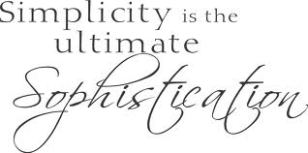 Your CEO/owner/boss/etc. is a busy individual. That’s why they hired you. Your job is to support them. My first boss told me, “Your job is to make me look good.” This may sound egotistical, but it’s the absolute truth. The best thing you can do for your career is to make your boss’s life easier. This encompasses a lot of tips for first-time professionals: dress well (so your boss doesn’t have to explain you to others), be knowledgeable about the business (so you can actually carry on a conversation and add value), etc. All of these boil down to one thing: doing your job exceptionally results in your boss’s life being easier.
Your CEO/owner/boss/etc. is a busy individual. That’s why they hired you. Your job is to support them. My first boss told me, “Your job is to make me look good.” This may sound egotistical, but it’s the absolute truth. The best thing you can do for your career is to make your boss’s life easier. This encompasses a lot of tips for first-time professionals: dress well (so your boss doesn’t have to explain you to others), be knowledgeable about the business (so you can actually carry on a conversation and add value), etc. All of these boil down to one thing: doing your job exceptionally results in your boss’s life being easier.
In order to do this, you need to hone your “simplicity” skills. Taking something complicated and being able to straightforward give facts is an invaluable skill. Your boss (and others who are invariably watching you) will notice that you’re the one to go to for answers. Simplistic isn’t skewing the facts or being lazy, it’s being able to sift through jargon with an awareness of what is relative to the business and thus valuable to the C-suite.
The second step is the ability to analyze the simplistic data and provide a suggestion. Your boss will love getting hard facts and a suggestion on what to do. They may not like the idea, but by hearing “no” and reasons why you will learn something. You’ll also be seen as someone who is willing to take risks and think outside the box.
“Making the simple complicated is commonplace; making the complicated simple, awesomely simple, that’s creativity.”
-Charles Mingus
In HR, we not only need to make things simplistic for our fellow managers, but also for the employees. Taxes, benefits, policies… these things are all daunting to employees, especially new hires. Knowing how to give complete, simple, concise information is key to achieving your own goals.
